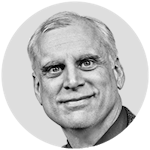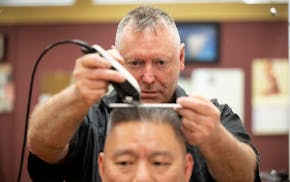Andrew Butts had childhood asthma and remembers waking up, unable to catch his breath. Near his home in Pleasant Prairie, Wis., was a coal-fired power plant.
He connects the two, struck by how his family's health was shaped by energy choices beyond his control.
While Butts, 33, was in grad school at the University of Minnesota studying science, technology and environmental policy, he started a nonprofit organization that connects consumers to green energy options through local utilities.
Butts' Green Neighbor Challenge recently won a $100,000 from the Environmental Justice Data Fund, which is seeded by Google.
"One day in class, I learned I could sign up for Xcel's Windsource program for a fraction of my inhaler's co-pay charge monthly," said Butts, 33, who worked as a freelance videographer and supply chain analyst at SC Johnson before grad school.
"I discovered my friends across the country had local programs, too. Signing up is easy, but the action is also empowering," he said. "So I spent the second year of my studies exploring how ordinary people could transform our energy system. That informed our mission to make it easy for residents to find, understand and enroll in these green-pricing programs so that we can all breathe easier."
The following is an interview with Butts about his nonprofit and his case for using renewable energy, edited for length and clarity.
Q: What do you plan to do with the award?
A: We plan to expand our green-pricing database and develop a similar tool to help homeowners access energy efficiency incentives and rebates through utilities, governments and nonprofits, including those being created by the recently passed Inflation Reduction Act. We also aim to develop a tool to help low-income residents find and apply for state energy assistance programs through their local community action agencies, which are notorious for being both underutilized and underfunded.
Q: What are the statistics that support the market you seek to serve?
A: According to National Renewable Energy Laboratory data, more than 70% of U.S. homes, including renters, have the ability to sign up for green energy for a small additional fee through their utility, but due to lack of marketing about these programs, only 14% of households are aware these options exist. Worse, only 2% have signed up.
Over the past four years, our team researched and built the first detailed, nationwide database of utility green energy programs. For the 27% of households who don't have access to green energy through their utility, they can purchase Green-e certified renewable energy certificates through the Bonneville Environmental Foundation.
Q: What's the case for switching to renewables?
A: Many states have laws giving energy users a right to choose cleaner air. Even setting aside climate crisis, the health benefits of switching to renewables can more than pay for the entire energy transition. Here in the Midwest, the Environmental Protection Agency estimates the public health benefits of solar and wind to be from 3 to 6 cents per kilowatt hour (kwh). Xcel's stated net charge of Windsource is 0.6 cents per kwh. That means there is five to 10 times the health benefit, relative to the cost. Combining this EPA assessment with Department of Energy data, we have estimated that if just 2% of U.S. households switched to green energy, the reduction in air pollution would generate upward of $983 million in public health benefits annually. That means fewer strokes, heart attacks, asthma attacks, doctor visits and days of missed work.
Q: You mentioned that Green Neighbor Challenge so far, other than the $100,000 award, has survived on about $10,000 you have raised from supporters. You and others who have worked on this have been basically volunteers. How have you supported yourself?
A: Most of our contributors have been students, but others have full-time jobs, are between jobs or survive on part-time/gig work. I'm in the last category and am fortunate to have a supportive network. I pick up a lot of contract work from the university as a freelance video editor and as a course instructor for the sustainability themed game design class Regenerative Game Studio, as a teaching assistant for two other sustainability courses and even as a water researcher for the Institute on the Environment.
Q: What is the end game?
A: Not only do we want to accelerate the transition to renewables, but in the process, we want to grow the knowledge and capacity of people to shape their local energy system to meet the needs and desires of the community. Information is power. And public information is essential to democracy. With it, we can force our utilities to procure more certifiably green energy, above and beyond their regulatory requirements. Demonstrating support for renewables also sends a message … about the world we want.
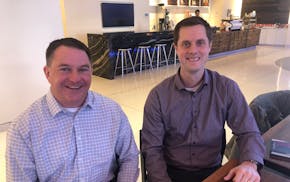
St. Anthony: 'Patient' investing paying off for St. Paul's Hill Capital
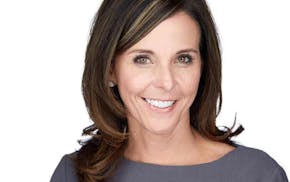
Jennifer Smith, leader of Burnsville's Innovative Office Solutions, has died
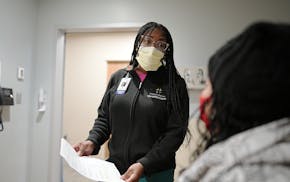
St. Anthony: Medical professions in Minnesota need more people of color in their ranks

